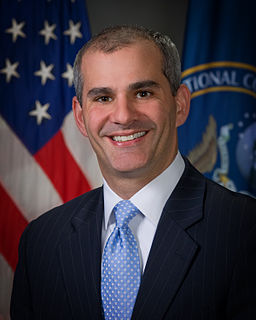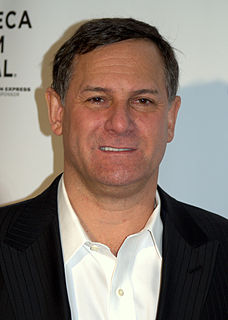A Quote by Peter Thiel
Men and machines are good at different things. People form plans and make decisions in complicated situations. We are less good at making sense of enormous amounts of data. Computers are exactly the opposite: they excel at efficient data processing but struggle to make basic judgments that would be simple for any human.
Related Quotes
One of the myths about the Internet of Things is that companies have all the data they need, but their real challenge is making sense of it. In reality, the cost of collecting some kinds of data remains too high, the quality of the data isn't always good enough, and it remains difficult to integrate multiple data sources.
What I learned from my work as a physician is that even with the most complicated patients, the most complicated problems, you've got to look hard to find every piece of data and evidence that you can to improve your decision-making. Medicine has taught me to be very much evidence-based and data-driven in making decisions.
MapReduce has become the assembly language for big data processing, and SnapReduce employs sophisticated techniques to compile SnapLogic data integration pipelines into this new big data target language. Applying everything we know about the two worlds of integration and Hadoop, we built our technology to directly fit MapReduce, making the process of connectivity and large scale data integration seamless and simple.
Eventually, we need to have computers that work differently from the way they do today and have for the past 60-plus years. We're capturing and generating increasingly massive amounts of data, but we can't make computers that keep up with it. One of the most promising solutions is to make computers that work more the way brains work.
I'm a very good decision maker because I have core set of principles and so I can make decisions. Decisions can be very hard and you have to wrestle with them, but I'm able to get all the data on the table and figure out what would be the best decision because decisions mean ill for some people and mean positives for others.



































